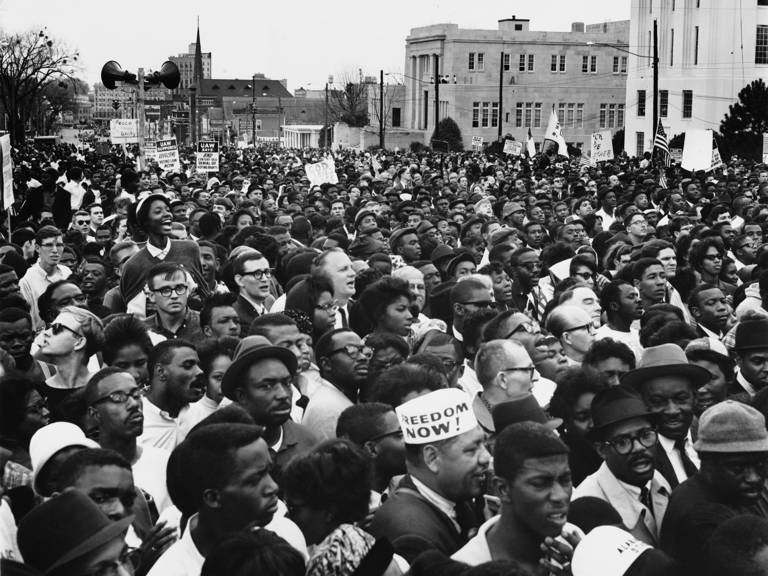Wilder v. Lambert Petition for Writ of Habeas Corpus by a Person in State Custody
Public Court Documents
January 1, 1983 - January 1, 1983

This item is featured in:
Cite this item
-
Case Files, Bozeman & Wilder Working Files. Wilder v. Lambert Petition for Writ of Habeas Corpus by a Person in State Custody, 1983. 57559aca-f092-ee11-be37-6045bdeb8873. LDF Archives, Thurgood Marshall Institute. https://ldfrecollection.org/archives/archives-search/archives-item/fc83cfb3-ecc1-43d2-9307-de65ddbf3964/wilder-v-lambert-petition-for-writ-of-habeas-corpus-by-a-person-in-state-custody. Accessed February 21, 2026.
Copied!
I
Prisonerrs Name: JuIia p. Wilder
Prison Number: 0013071 I
P1ACE Of CONfiNEMCNt: ON PAROLE FROM KILBY CORRECTIONS FACILTTY
rN THE UNITED STATES DISTRICT COURT
FOR THE MIDDLE DISTRTCT OF ALABAMA
MONTGOMERY DIVISION
--x
JULrA P. WTLDER, :
Petitioner r z Civil Action No.
- against :
EALON M. LAMBERT, JACK C. LUFKTN AND :
JOHN T. PORTER IN THETR OFFICAL
CAPACITTES AS MEMBERS OF THE ALABAMA 3
BOARD OF PARDONS AND PAROLES, AND
TED BUTLER, A PROBATION AND PAROLE :
OFFTCER, EMPLOYED BY THE ALABAMA
BOARD OF PARDONS AND PAROLES t Z
Respondents. :
:
--x
I
Petition for Writ of Habeas Corpus Bv A
Person In State Custodv
TO THE HONORABLE JUDGE OF THE DISTRICT COURT FOR THE
MTDDtE DISTRTCT OF ALABAMA, MONTGOMERY DMSION:
1. The name and location of the court which entered
the judgment of conviction and sentence under attack are!
(a) The Circuit Court of Pickens County, Alabama.
(b) Carrollton, Pickens County, Alabama.
2. The date of the judgment of conviction and sentence
is May 31, 1979.
3. The sentence is that Ju1ia P. Wilder be imprisoned
in the peni.t,entiary of the State of Alabama for a period
of five years. She is currently on parole in the custody
of respondent members of the State Board of Pardons and Parole.
4. The nature of the offense involved is that p.etitioner
was charged in a three count indictment with violating Ala.
Code S 17-23-1 (1975) in that she allegedly voted illegaI1y
in the Democratic Primary Run-Off Election of September 26, 1978
(hereinafter run-off ) .
5. Petitioner's plea was not guilty.
5. Trial was had before a jury.
7. Petitioner testified at tria1.
8. Petitioner appealed her conviction.
9. The facts of petitioner's appeal are as follows:
(a) The judgment of conviction was appealed to the
Court of Criminal Appeals of A1abama. That court affirmed the
conuiction on March 31, 198.l. 401 So.2d 151.
I
(b) The Court of Criminal Appeals of Alabama denied a
motion for rehearing of the appeal on Aprit 2L, 1981. Id.
(c) The Supreme Court of Alabama denied a petition
for writ of certiorari to the Court of Criminal Appeals on July
24, 1981. 401 So.2d 167 .
(d ) The Supreme Court of the United States denied a
petition for writ of certiorari to the Court of Criminal Appeals
on November 16, 1981. 454 U.S. 1057.
10. Other than the appeals described in paragraphs 8 and
9 above, the other petitions, applications, motions, or proceed-
ings filed or maintained by petitioner with respect to the
judgment of November 2, 1979 of the Circuit Court of Pickens County
are described in paragraph 11 below.
11. A motion for a new trial was made to the Circuit
Court of Pickens County. The motion was denied on September 27,
L979.
L2. Petitioner !{as convicted in violation of her rights
guaranteed by the First, Fifth, Sixth, Fourteenth and Fifteenth
Amendments to the Constitution of the United States, and by the
Voting Rights Act, 42 U.S.C. S 1971 et seq., for each of the
reasons stated below.
I. fntroductorv Facts
13. Petitioner Ju1ia P. Wilder was convicted of
i1Iegal voting because of her alleged participation in an
effort to assist elderly and illiterate black voters to cast
absentee ballots in the run-off.
2-
I
14. On October I0, 1978r two weeks after the run-off
election, the Sheriff of Pickens County, Mr. Louie Coleman,
along with the District Attorney of the County, Mr. P.M.
Johnstonr dn investigator named Mr. Charlie Tate, and Mr.
Johnstonrs secretary, Ms. Kitty Cooper, opened the county
absentee ballot box, and began searching for ballots which
could be connected to petitioner and to the general effort to
aid elderly blacks in Pickens County to vote by absentee
balIot. Tr. 69-70*/ They isolated thirty-nine absentee ballots
out of the many cast. These ballots were isolated by the
following method. Mr. Tate was able to get the names of certain
of the voters whose application for an absentee baIlot petitioner
had turned.in. Tr. 70-71, 74-76i see also Tr. 45-46. Since at
that time Alabama law required that the absentee ballot contain
the name of the voter, AIa. Code SS17-10-6, 17-10-7 (1975),
amended Acts 1980, No.80-732, p. 1478, SS3, 4, Mr. Tate was
thus able to identify the ballots of these voters; and when it
was noticed that each of these ballots had been notarized by
Mr. Paul Rollins, a black notary public from outside of
Pickens County, all of the absentee ballots notarized by Mr.
Rollins, amounting to a total of 39, were isolated. Tr. 58,
75-76.
15. Each of the 39 absentee ballots !{as represented
to be the vote of a different black, elderly, and infirmed
resident of Pickens County. The state claimed that Ms. Wilder,
who is 70 years old, participated in the casting of these
ballots in violation of AIa. Code S 17-23-1 (1975).
!/ A11 transcript citations refer to the transcript of peti-
tioner's trial.
3-
